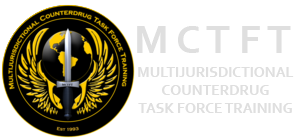During the hour-long CADCA-TV broadcast, The Path to Community Change,
learn what environmental strategies are and how to implement them. See how Weed & Seed sites in Atlanta have changed during the past three years and learn from their successes and setbacks.
Learning Objectives:
- Learn what an environmental strategy is and how to implement them
- See how applying environmental strategies can impact substance abuse
- Discover why it takes a group to implement true change
- Learn the seven strategies to affect community change
Originally Aired: March 26, 2009
Panelists
Michael Browning
Senior administrative analyst for the University of California, Berkeley – Institute for the Study of Social Change, Prevention by Design
Browning provides direct training, technical assistance and planning support to county and community-based alcohol and drug prevention departments and programs.
He is a former executive director of a non-profit anti-drug coalition and has more than 20 years of local, state and national youth services, community organization, substance abuse prevention, violence prevention, cultural proficiency development, program planning, development and evaluation, public policy advocacy, and strategic planning experience. Browning has served as an executive director, deputy director, and interim director on loan to collaborations across Southern California. His former employers include community-based programs in Pasadena, Inglewood, Los Angeles, and Michigan.
Browning provided support to President Jimmy Carter’s Atlanta Project and Nancy Reagan’s BEST After School Drug Prevention Program, and the Hilton Foundation’s Project ALERT. He is a trainer for the CADCA Institute and also provides technical assistance and coaching to CADCA’s members. Mentoring, parenting, coalition building, violence prevention, self-help mutual support groups, and curriculum development are just a few of the programs that he has developed and implemented.
Browning is former member of the Director’s Advisory Council of California’s Department of Alcohol and Drug Programs and is a founding member of the California Prevention Collaborative. He was awarded a Join Together Fellowship at Boston University, a Eureka Fellowship and is a graduate of the University of Southern California. He sits on several local and national boards, task forces and committees.
Jane Callahan
Director, National Coalition Institute, CADCA
As the Director of the National Community Anti-Drug Coalition Institute, Jane Callahan is responsible for a large federally funded program to support community anti-drug coalitions throughout the country. The Institute is administered by Community Anti-Drug Coalitions of America (CADCA). Her duties include developing and carrying out an effective strategy to show a measurable increase in the knowledge, capacity and accountability of community anti-drug coalitions throughout the nation.
As the former Director of the City of Vallejo, California Fighting Back Partnership (FBP), Callahan guided the operation of this local community coalition from 1990 to 2002. With the support of numerous community partners, Vallejo successfully obtained a twelve-year Robert Wood Johnson Foundation Fighting Back grant, a CSAP Community Partnership grant and a large scale AmeriCorps project to support the activities of the Partnership. One of the largest, broadest and most comprehensive anti-drug coalitions in the country evolved during Callahan’s tenure.
From 1985 to 1990, she was the Coordinator of the Children’s Network of Solano County, one of the first children’s service multi-agency, multi-sector collaboratives in California. With a strong policy and resource development focus, it served as an early model for today’s system reform efforts, which are working to improve outcomes for vulnerable children and families through collaborative programming.
She also has a background in legislative advocacy for children and has worked to pass several important children and family bills, has helped community groups start organizations and programs in rural California counties and has participated in policy and program development initiatives on the local, state and national level.
Callahan came to the field after becoming a single parent while enrolled in college. After majoring in English and Child Development and receiving a M.A. in Education, she helped found a nonprofit organization to start programs to help families in the area of childcare and family support. She devoted six years to managing this nonprofit organization, which continues to exist today with a variety of programs and services.
Sally Zellers
Director, Topeka/Shawnee County Safe Streets Coalition, KS
Sally Zellers is the Director of the Topeka/Shawnee County Safe Streets Coalition and has been with the coalition since its inception in 1995.
Zellers has a diverse background that includes being a Licensed Practical Nurse, working for USD 501 in the Occupational Therapy Department and as a volunteer neighborhood and community mobilizer. She’s an approved trainer for the Crime Free Multi-Housing Program, and became an Approved Mediator for the State of Kansas in 2000. She also serves as a national trainer for CADCA (Community Anti Drug Coalitions of America) Zellers currently serves on the Police/Citizen’s Advisory Council, Weed & Seed Steering Committee, Topeka Visioning Task Force and serves as a community member of the Capital Journal Editorial Board.

